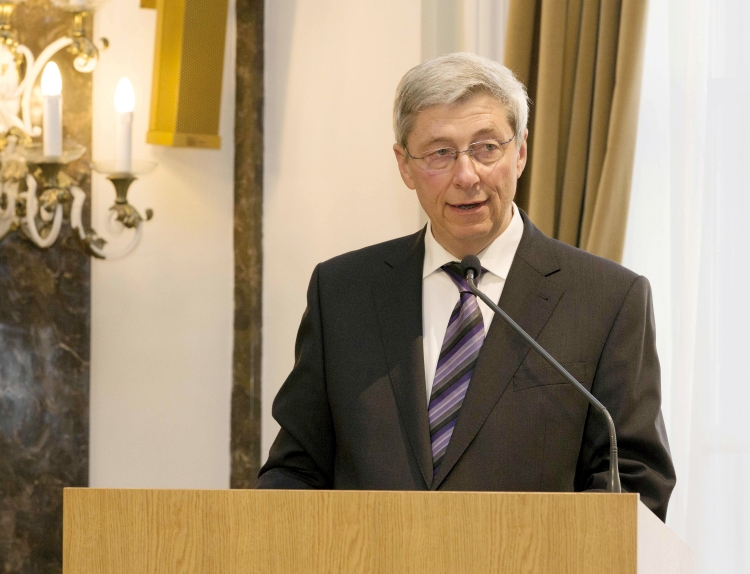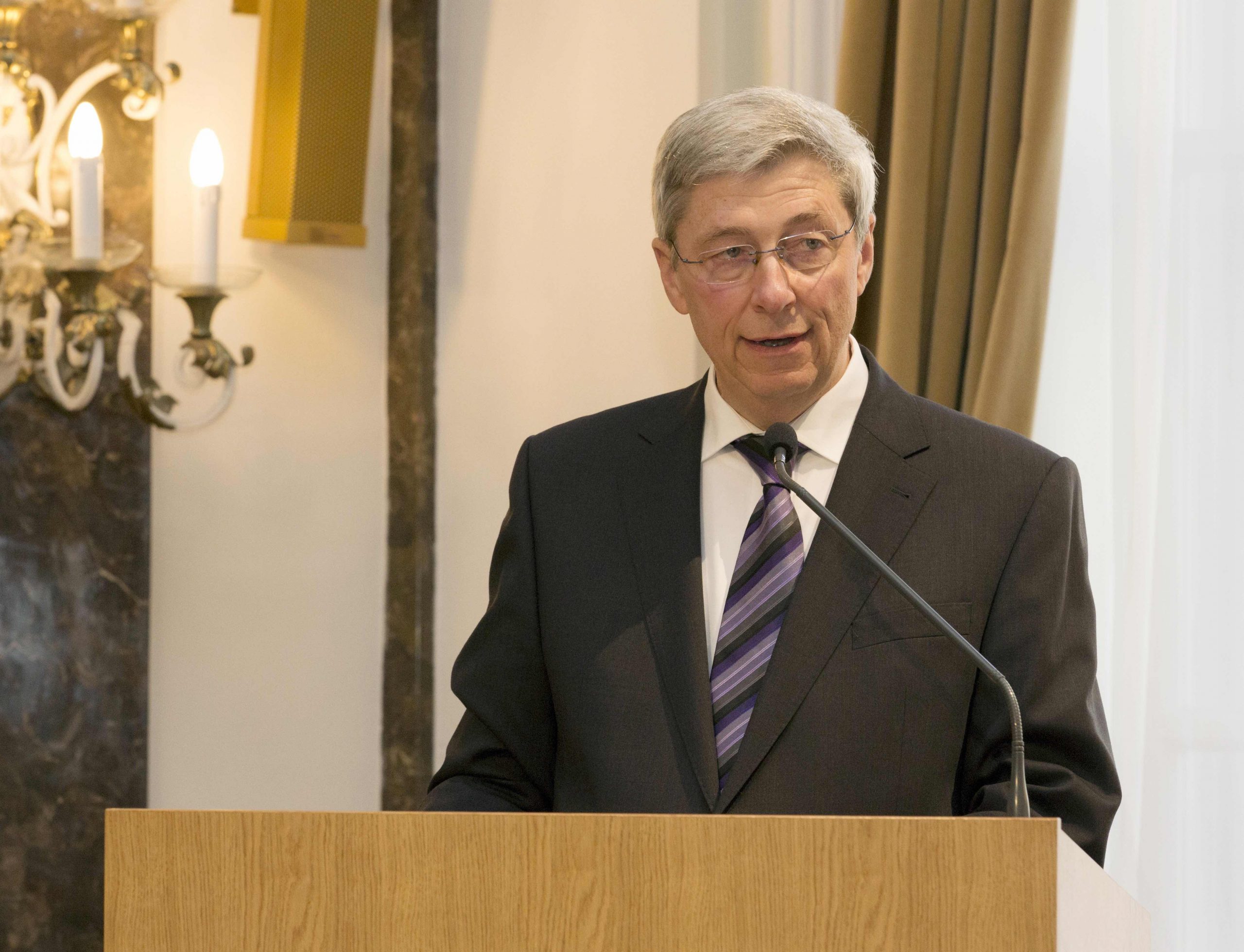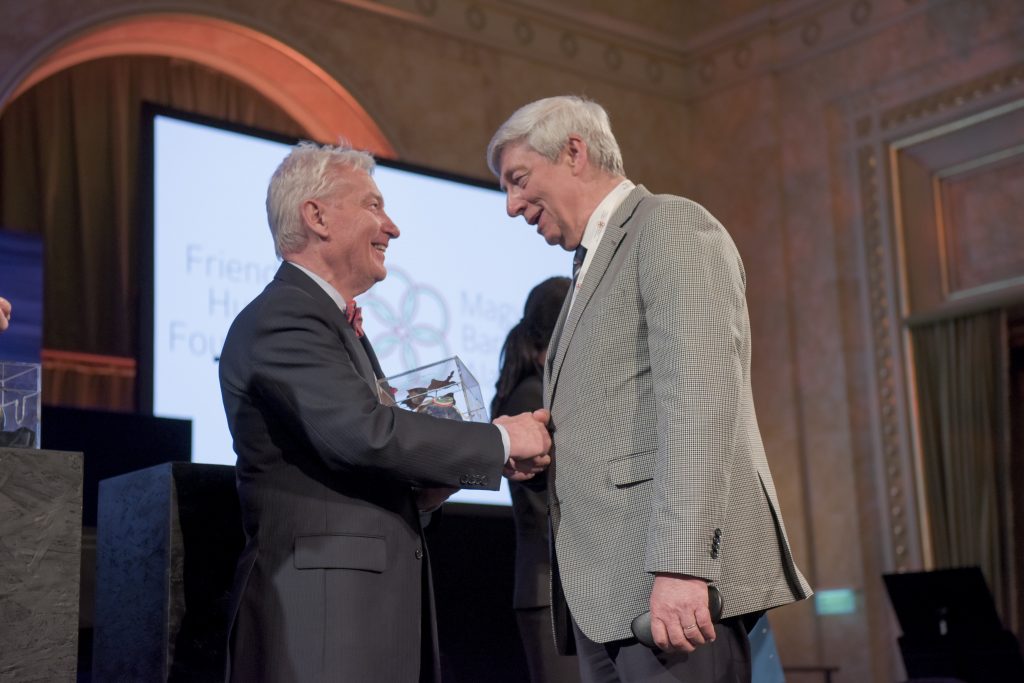
Still fragmentation, ideological disputes and personal vanity destruct the hopes of the opposition to win the elections and their relief.Continue reading

27 years at the Frankfurter Allgemeine Zeitung and also political reporting on Hungary- this is how Reinhard Olt’s personal history with our country began. As he admitted to us, he had no expectations of Hungary when he became, among other things, a Hungarian correspondent for the German magazine. But he believes that the “most striking changes in the country, meanwhile, have occurred only since Orbán’s election victory in 2010.” The former journalist highlighted, among other things, family, economic, and minority policies. He has also specialized in minority politics with his work, about which he even wrote the book In the Carpathian Arc (recently published by the “Friends of Hungary Foundation”). INTERVIEW.
This interview was originally published on our sister-site, Ungarn Heute.
For 27 years you worked at the Frankfurter Allgemeine Zeitung. Can you still remember the first report about Hungary?
Certainly. My first report came from Budapest and appeared in the Frankfurter Allgemeine Zeitung (F.A.Z., Frankfurt General Newspaper in English) on May 14, 1991. I deliberately included it in my book In the Carpathian Arc…./A Kárpátok ívében (under the title “How it all began”). However, with that, I did not write about Hungary as a country but reported on a nationalities congress that had taken place in Budapest.
What were your expectations of the country when you became a correspondent, and what did you see in comparison?
I took up my correspondent post in Vienna in 1994 but didn’t become responsible for political reporting on Hungary until 2000. But that doesn’t mean that I didn’t have my eye on the country from the very beginning. I was already involved with Hungary when I worked in the Frankfurt Central Editorial Office from 1985 to 1994. In fact, I had already been involved with Hungary while studying Eastern European history.
When I actually became the correspondent for Hungary, I had no particular expectations of the country, I was actually just curious about the first Orbán administration, which had been in office for two years at the time.
But before I could gain enough experience with it, it was soon history again, because the old formation of MSzP (Hungarian Socialist Party), and SzDSz (Alliance of Free Democrats, which does not exist anymore) under Médgyessy replaced it in 2002.
In what way has the country changed the most these past 27 years?
The most striking change was undoubtedly the political regime change- initiated by Hungary- and the transition from “goulash communism” (in the “happiest barracks of the Eastern Bloc”) to a liberal social order. The most striking changes, however, occurred only since Orbán’s election victory in 2010. Only then were facts created that put a stop to the activities of the “old forces in a new guise. (Just for comparison: one can see in neighboring Romania where it leads if the “old forces” with their behavior remain in power despite changing governments!).
Hungary has become a prosperous business location during the election and government periods since 2010. The family policy practiced is exemplary, the prevention of the influx from cultural circles with which our Christian Western culture has (and shouldn’t have) nothing in common is exemplary, and the preservation of the national identity and national consciousness of the Magyars is also exemplary.
How do you see German media reports about Hungary? Have they changed significantly in recent years?
I view them extremely critically and with some dismay. Of course they have changed in recent years- anything but for the better.
Here in Hungary, we often have the feeling that our country or domestic political events appear overrepresented in the German media. Can you, as a German living in Vienna, confirm this remark?
This feeling of yours may be deceptive. I cannot confirm an “overrepresentation” of domestic political events. I can only note a complete exaggeration of events up to bizarre one-sidedness of morally insensitive reporting and commenting, and I can also note that the media observations on Hungary, especially as they are made and published about the government (divisions), do not correspond to the standards that I have come to know and have practiced.
Is the image of our country not distorted by the fact that the correspondents of major foreign newspapers in most cases do not live in Hungary and do not even speak Hungarian? (Die Welt, F.A.Z….)
These are not really powerful and applicable criteria, which you mention here to distort the image of Hungary. I, too, have never lived in the country, I do not speak Hungarian, and I claim to have reported, analyzed, and commented truthfully and honestly. In my opinion, the problems lie elsewhere. There is no longer proper research, one marches along in a kind of “mainstream lockstep,” because one can hardly escape it without doing harm. One “corresponds,” reports/describes not really according to the basic journalistic “W-questions” (What? When? Who? Why?), but shows attitude. The dictum of a famous German journalist named Hanns-Joachim Friedrichs has long since ceased to apply: “You can recognize a good journalist by the fact that he doesn’t make himself common with a cause – not even a good cause; that he’s everywhere, but doesn’t belong anywhere.”
In your work as a journalist, you have specialized in the topic of “Hungarian minority politics.” In your book In the Carpathian Arc, you mention your father who exercised the greatest influence on this choice of topic. Why?
As a journalist, I have not only dealt with “Hungarian” politics, but with minority politics in general. And I have, not only as a journalist but also as a scientist (as which I have always been engaged besides the journalistic main occupation), and have published scientific articles in books and professional journals; of course I have also dealt with other national minorities.
My father caused a kind of “initial spark” by the fact that during his war captivity in Siberia he met members of several nationalities, including Hungarians, in Gulag camps – and talked a lot about them. That aroused my interest.
Nevertheless, I must attribute the main part to my studies of (Eastern European) history at an institute of the University of Giessen, where numerous researchers from Central (Eastern) and Southeastern European countries, including Hungarians, worked as lecturers. In addition, during my history studies, I was very concerned with the Habsburg Empire, (i.e. with Austria-Hungary), as well as with the political and contemporary historical developments after its collapse as a result of the First World War.
How did the idea to write your recently published book come about? What is the aim of the book?
I was the first German-speaking journalist who once wrote about the Csángós. My friend, József Komlóssy, a Székler who belongs to the 1956-ers, who, like many of his generation at that time, left Hungary as a result of the Soviet suppression of the uprising and returned (through Canada and Switzerland), who then played an important role for Hungary in the Council of Europe and participated in the leadership of the “Federal Union of European Nationalities” (FUEN). He encouraged me to do so, as did Zsolt Németh, Fidesz foreign policy expert and founder of the “Pro Minoritate Alapítvány.” Zsolt said that I absolutely had to write a book about the Csángós. I replied that I thought it was more important to write about all Hungarian minorities, if possible, and to place this in the framework of the EU’s European minority policy. And “Jóska bácsi” (i.e. József Komlóssy) approached the world-famous Hungarian scientist Professor E. Sylvester Vizi, the former President of the Academy of Sciences and the current Chair of the Board of Trustees of the “Friends of Hungary Foundation” (Magyarország Barátai Alapítvány) with the proposal. I had to send my manuscript to him; he was enthusiastic and immediately supported the book edition in German and the financing by the foundation. And Zsolt Németh guaranteed an edition in Hungarian.
I would like to emphasize that I wrote the book completely without any self-interest and provided the manuscript entirely without any fee. The aim of the book should be to awaken and promote knowledge and understanding of national minorities in general and Hungarian minorities in particular in German-speaking countries. The Hungarian edition is naturally aimed at all those who speak Hungarian or at those whose mother tongue is Hungarian. By the way, I am curious as to whether an edition in English will also be published, as some people have asked for one…
Have you received any feedback on that yet?
I have already received a lot of feedback, and there should be more as the delivery progresses, which faltered during the “Corona phase” and therefore did not always go smoothly.
Your first articles on this topic date back to the nineties- are many of them still relevant today?
Naturally. Since the compilation reflects the development, it therefore forms a continuum in terms of content and enables reflection and penetration.
The European Union recently rejected two important initiatives (Minority Safe Pack and the petition of the Szekler National Council) that could have remedied this problem. Were you surprised by the decision?
No, not in the slightest – the way the EU is constructed and understands itself, this was have been expected. Although I think it is absolutely inappropriate and misguided.
There is protection of minorities in the EU, but in practice, this relates more to refugees and sexual minorities than to ethnic groups. At the same time, the motto of the EU is “United in diversity.” Why do you think they are not paying more attention to this problem?
Because centrally organized or constituted states- above all those of Romania, and especially France and Spain- are always against it (and will probably remain so).
Do you think that the West understands the scars caused by Trianon yet?
No, “the West” does not want to understand them at all- only the historically informed and those who suffer from them understand what Trianon means for Hungary and the Magyars.
How can you explain this to a foreigner, for example, a German citizen?
You can explain this to any foreigner- as long as he has certain basic knowledge shows willingness, and you, as the person explaining, have patience for it.
How well do the respective German governments understand the drivers of Hungarian foreign and domestic policy?
No blanket judgment is possible on this- one understands them (well), the other less so; one is interested, the other less so or not at all.
We are now just past the federal elections in Germany. After the victory of the German Social Democrats, many expect a “cooling off” in Hungarian-German relations. Is that a real vision in your opinion?
Undoubtedly; nevertheless, due to the economic interdependencies, there will not be an “ice age;” that would be contrary to the prevailing interests and altogether absurd!
Both Hungarian and German foreign policy is strongly connected with economic policy. Relations in this area are lively. Can this be a clue?
See the previous answer.
A few years ago you became a member of the Friends of Hungary Foundation in Budapest. Do you love the country that much?
I only love my wife! I appreciate the country immensely and I am pleased with the national consciousness of Hungarians, to which I feel deeply connected.
In 2017, you were the recipient of the “Friend of Hungary Award,” which is given to people who, among other things, work to improve the representation of Hungary. How have you been able to contribute to Hungary’s interests or to a positive development of Hungarian-German relations since then?
Whether I could actually contribute something to it, I cannot estimate. I have merely tried and still try to contribute to it, journalistically- both actively and passively.

E. Sylvester Vizi, chair of the Board of Trustees of the Friends of Hungary Foundation, and Reinhard Olt. Photo by Tamás Lénárd/Hungary Today
You have spent a lot of time in Hungary throughout your life. Have you ever thought of moving here permanently?
I have thought about it, but straight out: this would involve a great many difficulties and uncertainties, especially with regard to my ailing health, which I could no longer muster the strength to overcome. And I will hardly become an “honorary citizen,” which would morally entail a move…
Featured photo by Tamás Lénárd/Hungary Today